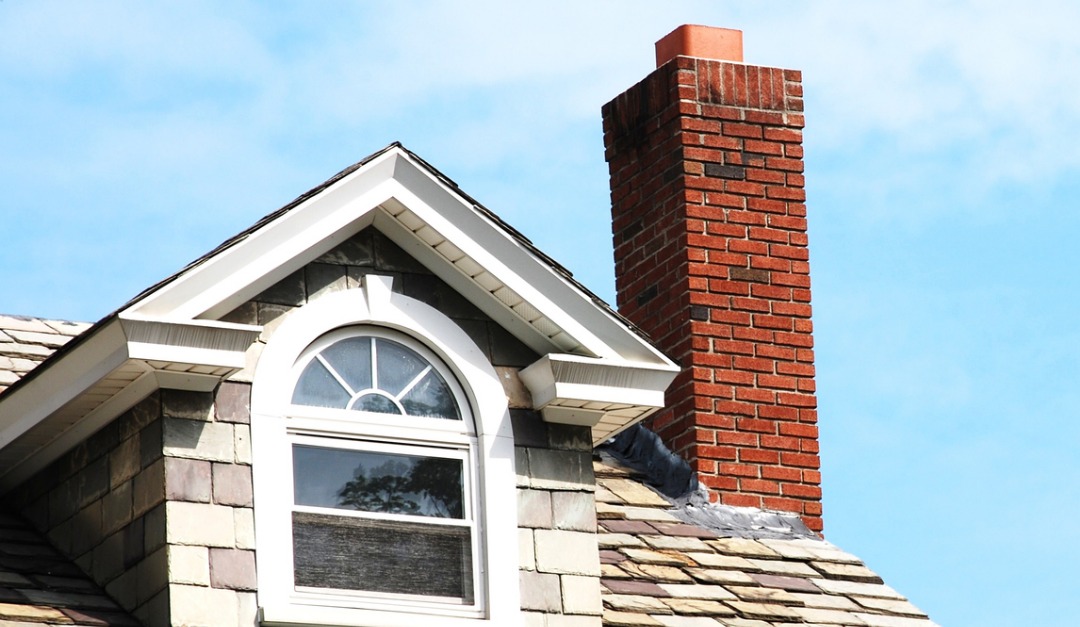A damaged chimney is a fire hazard. Some problems can be identified by a homeowner, but many are only noticeable to a professional under specific conditions. If you see any signs of a problem, contact a chimney repair company. You should also have your chimney cleaned and inspected regularly.
Common Chimney Problems
Moisture in a chimney or fireplace can cause rust in the firebox or on the damper. Even if you don’t see rust on the damper, if it’s difficult to use or doesn’t seal well, it may be rusting. Rust can also cause the flue lining to crack, which can lead to a house fire. A chimney sweep will need a special camera to identify a cracked flue liner.
If water enters brick, it can cause the surface to peel or flake off or to pop out in a process called spalling. Pieces on the outside of the chimney can fall off, and the problem will only get worse if it isn’t repaired.
Efflorescence, or white staining on the chimney, is caused by moisture in the masonry. Stains can be cleaned easily, but cleaning doesn’t address the underlying issue. If the moisture problem isn’t dealt with, the chimney can deteriorate.
If you have wallpaper near the chimney, it can be damaged by moisture. You should have the chimney inspected and repaired.
Shaling is a process in which the chimney’s flue lining is damaged and thin pieces of chimney tile come loose and accumulate in the fireplace. Shaling can make the chimney unsafe to use. If chimney tiles are cracked but have not yet started to crumble, you may not recognize a shaling problem, which is why a professional inspection is so important. A shaling flue liner can be replaced with a stainless steel liner that’ll last longer.
Damaged mortar joints can quickly worsen. Water can enter cracks in bricks and then freeze and thaw, which can eventually cause the chimney to collapse. Damaged mortar joints may be impossible to spot from the ground, but a professional will be able to identify them through a rooftop inspection.
A chimney crown protects the chimney from rain and snow. If it’s cracked, water can seep in, freeze and thaw, causing the cracks to grow. Moisture can also seep in between the chimney and liner and lead to shaling and spalling. If the chimney crown is cracked, it and the chimney can be weatherproofed to prevent further damage.
Have Your Chimney Cleaned and Checked for Damage
Many people assume that a chimney doesn’t need much maintenance and take it for granted, completely unaware that their homes have serious fire hazards. If you notice any of these issues, have your chimney inspected and repaired. You should also schedule regular cleanings and inspections so problems can be detected and dealt with early.











